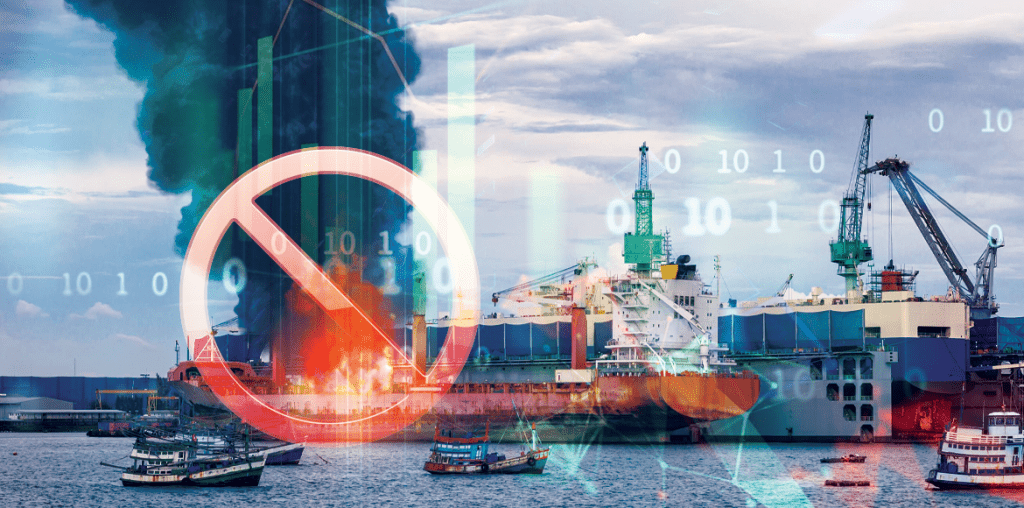Using Data to Prevent Incidents

Data to Prevent Incidents- George Kouloukas, Safety Manager at Gaslog Lng Services Ltd
George is responsible for organising and implementing GasLog’s HSE codes. He previously sailed on the organisation’s LNG carriers as Chief Engineer.
George explained how GasLog uses its data to keep seafarers safe.
By sharing the vast majority of their data (750-800 reports per month) with HiLo to be added into their fleet-wide database, GasLog receive meaningful safety analysis. This has been key to creating successful campaigns to minimise safety incidents. George spoke of his great happiness and satisfaction in working with HiLo for the past 6 years to achieve this.
Collating Key Maritime Data
How did Gaslog collate their data?
The first task was to bring together all GasLog’s data on unsafe acts and conditions, from a wide variety of sources, into a central database. Once this was completed, George stressed that it was very easy to upload data to the HiLo platform, because a roadmap was built by HiLo and GasLog to streamline the process.
Another potential difficulty was sharing the data from GasLog’s planned maintenance system (PMS), including unscheduled tasks categorised as potential ‘leading events’ for safety incidents. Again GasLog and HiLo worked together successfully to ensure the correct software and a simple process was put in place.
Now GasLog can now download all the incidents from the PMS within seconds, which can help them quickly identify any unsafe conditions that could lead to a safety incident; and look to prevent it. They can also upload the data to the HiLo database within a few seconds.
Finding the Right Steps to Prevent Safety Incidents
How does Gaslog use this data to prevent maritime safety incidents?
George noted that the key is to know which unsafe acts or unsafe conditions are the leading events that cause undesired safety events (such injuries and accidents).
GasLog have centralised all information into a common database, then transferred it to a data warehouse where it can be analysed. This analysis is very difficult, so HiLo also assist here by using the wider data from their fleet to draw the most accurate conclusions.
The filtered data and relevant information is then uploaded into the GasLog database. These undesired events are linked to leading events in the database, in order to see which lead to particular incidents and therefore how they can be prevented.
Another advantage, George noted, is that GasLog can benchmark their business data against the information from HiLo summary reports, to see how they are performing against competitors.
Driving safety campaigns
Most importantly, George explained, with the key risks identified actions can be taken to reduce and prevent safety incidents.
By combining GasLog’s business data and HiLo’s analysis, GasLog can run safety campaigns based on these top risks. They have improved mariner knowledge of how to spot and deal with these risks and therefore reduce safety incidents.
GasLog have run successful campaigns related to:
- Lifeboat and rescue boat launching
- Navigation
- Fire in accommodation.
George confirmed that these have been very effective, with safety data trends improving considerably. GasLog suffer fewer incidents, and have excellent safety statistics in comparison to competitors.
In summary, he said, it would be very difficult for GasLog as an organisation to filter and analyse all their critical safety data alone. The vast amount of data, and the considerable workload they have, means they needed help.
Therefore, HiLo do that work for them; and save money, time and lives.
Huge thanks to George for explaining how GasLog and HiLo successfully use data and analysis to keep more seafarers safe.
We were delighted he joined HiLo’s panel at the Posidonia conference: ‘Using Data and Analytics to Prevent Maritime Incidents’.
You can also read presentations from our other panellists:
- Loss Prevention, by Stuart Edmonston, UK P&I Loss Prevention Director
- Preventing Maritime Incidents Through Data And Analytics – a Lloyd’s Register Viewpoint, by Mark Warner, Director, Maritime Performance Services, Lloyd’s Register
- Improving Safety Through Data, by Andy Cross, Chief Operating Officer of HiLo